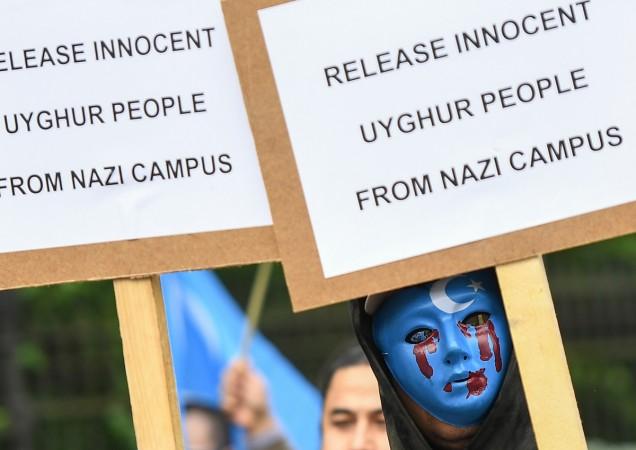
China has, on several occasions, made news for its questionable relation and treatment of minority religions, specially ethnic minority Muslims. And adding to this, the United States has said that the nation is estimated to be holding 800,000 to 2 million people in internment camps, a serious violation of human rights.
Scott Busby, Deputy Assistant Secretary of State at the Bureau of the Human Right Democracy and Labor, spoke of this detention at a Congressional hearing and said that China even supports all those regimes who take similar steps when it comes to religious minorities.
"The US government assesses that since April 2017, Chinese authorities have indefinitely detained at least 800,000, and possibly more than 2 million, Uyghurs, ethnic Kazakhs and members of other Muslim minorities in internment camps," the Press Trust of India quoted Busby as saying.
He also explained that the detainees have not been charged for any kind of crimes — some don't even know why they have been detained — and their families have no clue of their whereabouts. The detainees include renowned Uyghur intellectuals and retired professionals, who have no crime record and "the apparent goal is to force detainees to renounce Islam and embrace the Chinese Communist Party," Busby added.
In addition, he believes that life outside these concentration camps isn't too great either. Areas where religious minorities reside reportedly have checkpoints at entry and exit and Chinese officials often stay over with families. Busby also spoke of how China had shut down several mosques in the country. "Unfortunately, fleeing China is not enough to escape the long arms of the government. China has routinely pressured other countries to return Uyghurs, ethnic Kazakhs and members of other Muslim minority groups, which has often proven successful," he explained, adding that such treatment is not limited to minority Muslims.
He said that Tibetans too face harsh treatment in China and several of these oppression techniques were first tested at the Tibetan Autonomous Region.
While China's concentration camps have often been slammed by various quarters worldwide, Beijing insists that these are, in fact, "legal and humane job-training centres." Shohrat Zakir, the chairman of Xinjiang's government and an ethnic Uyghur himself, in October said that these camps are for the benefit of the minority group and here they are trained on several skills, which may help them in the future.

Zakir told Xinhua that these centres had courses in the Chinese language for the Uighurs and other Muslims and also inspired them to be law-abiding citizens. He also said that people living in these centres learnt several skills such as hairdressing, cosmetology, basics of e-commerce and making clothes.
Zakir also claimed that were not detainees, but "students" who enjoyed facilities such as air-conditioned dormitories equipped with TV and radio, good and free meals, and access to computers and even movie screenings.
"Indoor and outdoor sports venues for basketball, volleyball and table tennis have been built, along with reading rooms, computer labs, film screening rooms, as well as performance venues such as small auditoriums and open-air stages," he added.
"Xinjiang has launched a vocational education and training program according to the law," Zakir told the agency. "Its purpose is to get rid of the environment and soil that breeds terrorism and religious extremism."
However, former detainees have a different story to tell, one that involves "relentless indoctrination."
In May 2018, two former detainees of these camps spoke of their ordeal to the Washington Post and the conditions at these centres seemed worst than a prison. Omir Bekali and Kayrat Samarkand had revealed that the detainees, mostly Muslims, were forced to disown the religion every hour. They were often forced to criticize their beliefs, religion, and even their loved ones. And if that wasn't enough, the detainees were asked to learn the Communist propaganda and hail and pray for leader Xi Jinping's long life.
"Those who disobeyed the rules, refused to be on duty, engaged in fights or were late for studies were placed in handcuffs and ankle cuffs for up to 12 hours," Samarkand told the daily. He also revealed that punishments included waterboarding and being strapped for long hours in a metal contraption.

















